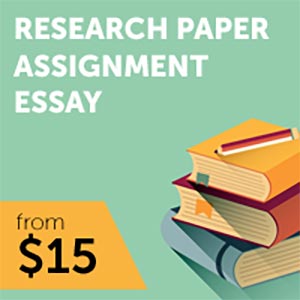Once more to the Lake is an essay written by E.B. in which the author tries to establish the links of his present life with his past experiences when he was a little boy. The essay starts as a father and son go to the lake, which was a favorite place for camping and fishing of the father when he was a child. The father is full of expectations as the lake symbolizes his youth ages and the most careless period of his life. So the decision to go fishing again on this lake may be regarded as an attempt to return childhood or at least to return childhood impressions and memories.
The father is depressed and it’ obvious while reading the beginning where he describes the lake of his childhood and the same lake during his elder years:
“It was like the revival of an old melodrama that I had seen long ago with childish awe.”
The main reason for such kind of depression is the fact that he is not able to return his childhood and the fact that he is getting older as he is not able to remember all moments of joy on the lake. Another important detail which is mentioned by the author is that the lake also had changed since the last time he was there. In childhood years it was nearly a virgin lake, with wildlife and absence of any kind of good roads to it. Now the lake had changed:
“The lake had never been what you would call a wild lake. There were cottages sprinkled around the shores, and it was in farming although the shores of the lake were quite heavily wooded”
Such attitudes show that the changes which happened to the lake and changes which affected the author: “the lake is no longer wild” it also makes him to understand that he is no longer a teenager, but a grown up with his own personal life, children and responsibilities. He understands that probably the impressions from this trip will be different as he is longer a child for whom the camping was the greatest event of the year. But nevertheless he is very attached to those memories and the use of “same” in the description of the lake only proves it.
The description of new experiences shows that the father is not able to accept new changes and adopt them. It become a hard a trial for himself. At this episodes we observe the idea of dual personality, as the reality which he has to perceive is different from his inner world and from his expectations and hopes. Besides, his expectations start to be ruined by the different attitude of the son to the lake trip. E.B. White thought his on would act the same as h did when he was a child and that for his son the trip to the lake would mean exactly the same as it meant for him. But his son considers the trip to be a usual camping on the lake event and sees nothing special in it. Father makes analogies between the behavior and attitude of his son of himself in childhood and sees that they are very different. The author also looked forward summer camping and it turned into a certain kind of ritual to fish on the lake and simply stay in camping. It’s clear while we read the description of the lake and pieces of his memories from the past. Now it changed. Author’s son doesn’t want to get up earlier to go fishing as fishing is considered to be a regular hobby not something charming and special. Author sees some kind of indifference in the eyes of his son and feels that everything had changed. He understands that he became a grown-up and his childhood is left only in his heart and in his mind. Childhood had transformed into simple memories of the past and that it became very private thing. Such feeling is very usual for people who return to the places which are associated with good memories, moments of happiness, joy and pleasure but instead of positive emotions people often feel nostalgia and unexplained melancholy. The author feels the same on the lake as the lake is probably the only symbol left from his childhood:
“The only thing that was wrong now, really, was the sound of the place, an unfamiliar nervous sound of the outboard motors. This was the note that jarred, the one thing that would sometimes break the illusion and set the years moving. In those other summertimes, all motors were inboard; and when they were at a little distance, the noise they made was a sedative, an ingredient of summer sleep.”
The culmination of the essay is very optimistic and positive for the author. The author describes the thunderstorm over the lake:
“The second-act climax of the drama of the electrical disturbance over a lake in America had not changed in any important respect. This was the big scene, still the big scene. The whole thing was so familiar, the first feeling of oppression and heat and a general air around camp of not wanting to go very far away.”
Even though that he writes that storm had not changed much since his childhood it becomes clear that the storm made him to change. It opened his eyes on the new reality so that the author begins to perceive reality from another angle, in realistic colors and enjoys it. Thunderstorm may be considered to be a new birth for the author. As the rain, thunder and lighting are gone and the sky is cleared the vision of reality changes and he even looks on his son differently. He stops blaming his son in disrespect towards the ideal’s of his very own childhood and understands that everything had changed and he has to accept reality in order to feel comfortable in his surrounding and feel comfort in his soul. The last episode makes one more argument for such point. The feel of cold chill of death at groin means that the author lets the trip to be just a trip without any expectations from his son to repeat his practices. He allows the boy to be an individual not an exact copy of himself.
Reference:
White, E.B. Once More to the Lake 1999

